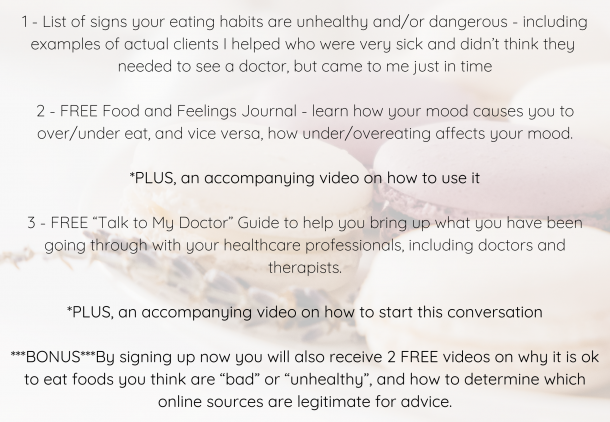n 2012 I started my private practice with one client, a pad of paper, pen, and a business license.
5+ years later I have a thriving business of clients, online work, contractor positions, and my own office; but it took some work to get there and figure out all the details along the way.
In this article, I am going to give you the quick guide of necessary things to do/get and what to skip to get your practice up and running without taking out a loan.
Assuming you are already a licensed professional (RD):
1. Get malpractice insurance. You want to be covered if any lawsuits come up (RDs are very low risk). As a sole-proprietor I think I paid $99/year, now I pay $118/year as an LLC (I will explain what these are below). If you have worked elsewhere you might already have malpractice insurance. For RDs, “Mercer Proliability” is the main company used.
2. Depending on where you will be practicing, you need to go to the city or county for a business license. This has an annual fee as well, but it establishes you as a business. There are a few kinds of business structures, but as a one-person business you really only need to know about 2 of them: “Sole-proprietor” and “Limited Liability Company” or “LLC.” I am no legal expert, so I won’t go too deep into this, but here are the basics (google “sole-proprietor” or “LLC” or “business legal structures” for more info):
A sole-proprietor is what most RDs choose/start as. This is what I chose to start with, and it was easy. It has the lowest fees, and for legal/tax purposes you and your business are one in the same.
LLC is a step-up from sole-proprietor, in that it separates you from the business and adds a buffer of legal protection. LLCs can be single-member, or multiple “members.” The cost and taxes are higher/more complicated, but you can hire employees.
3. Choose a “Doing business as” name (aka: “DBA”). This can be your own name (easy) or a business name. Make sure your name has not already been taken. Wherever you register your business they can guide you in how to search names, and the requirements. Chose carefully – this is how the public sees your business; but it can also always be changed later (I did this. It was a hassle, but worth it).
4. Separate your personal money from the business’s money. When I started my business I opened a business checking/savings account (which I recommend doing as soon as your business name/license go through) and put $3K of my own money in it to get started (you can probably do this all with $1K, but I didn’t know at the time). The fact that that money was basically my whole savings made it so I couldn’t fail – it was my money on the line. I recommend this for starting a business. Take a risk on yourself and prove that you can succeed.
5. Get the bare office essentials (you probably have most of this): notepad and pens (I like to use legal pads) for taking notes during a session; hanging file folders; a way to lock up client notes (filing cabinet with lock or locking briefcase – I got a locking briefcase for $20 that became my traveling “office” the first 2 years); cards and stamps (it’s nice to handwrite thank you notes to clients – I aim to send one to all my new clients).
6. Business cards: don’t bother getting more than 250, you will change your info/logo/etc once you figure your business out more. You don’t have to have business cards, but it looks/feels more professional.
*bonus tip – skip other physical marketing materials (flyers, banners, rack cards, newspaper ads) when you are just starting out. They are expensive, and really don’t work that well. This comes from my personal experience. I spent 100’s of dollars on marketing materials that got me maybe 1-2 clients. NOT WORTH IT until you are in the big-time (and maybe not even then).
7. Have a website – even if it is a work in progress! Everyone looks online nowadays, this should be listed on your business card, and potential clients can look at it to see a photo of you and services you offer/philosophy/etc. There are several free (starting) website builders out there. I use Weebly, but WordPress is very popular, as are Wix and Squarespace. See what you like/seems easy enough for your skill level. I like weebly because it is drag-and-drop, but it doesn’t have all the features that something like WordPress has with “plug-ins.”
Things you can wait on:
- A professionally-made business logo. These are beautiful, and once you are established – essential, but at the beginning you are just feeling out what your business will morph into (It’s never exactly as planned) and you might want something different. You can find edit-able designs online for cheap to use in the meantime.
- A lot of the “technology.” Until you have enough clients to warrant it, you don’t need to have charting (EMR) software. Keep thorough notes, and lock them up. Once you do have enough clients that you want HIPAA-compliant software to chart, take credit cards, and schedule appointments, I use “Simple Practice.” Here is a link to get a free 30 day trial and a $50 subscription credit after you sign up for a paid account.: https://www.simplepractice.com/?p=f4ef42a05e (I am not a sponsor for them, I just like the software from personal use).
- A physical office of your own. Of course, this is the dream, but it is very expensive, and if you get locked into a lease you have to have that money available every month (and buy furniture, decor….you get the idea – $$$). I started by seeing clients in their homes ( a little sketchy, but it worked out), or in public places like coffee shops/library conference rooms, etc. It wasn’t the most professional feeling – but my clients LOVED that I traveled to them! No one does that anymore, so it adds a nice personal touch. Alternatively (or once you have done that for a while), try office-sharing. I sublet a share of a room from a LCSW for a year, where whoever scheduled a client first blocked that time off on a shared google calendar for the space. You could also agree on set hours (which might be less stressful) for each of you to have the office space.
Ready to go start your practice? I hope this helps you get started with lower start-up costs!
If you have questions feel free to shoot me an email. I am contemplating taking business start-up clients for mentoring (there is a cost for this).


